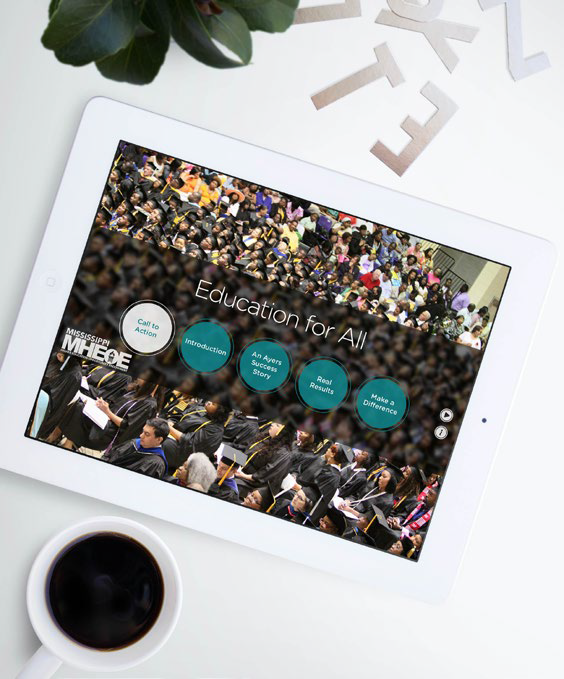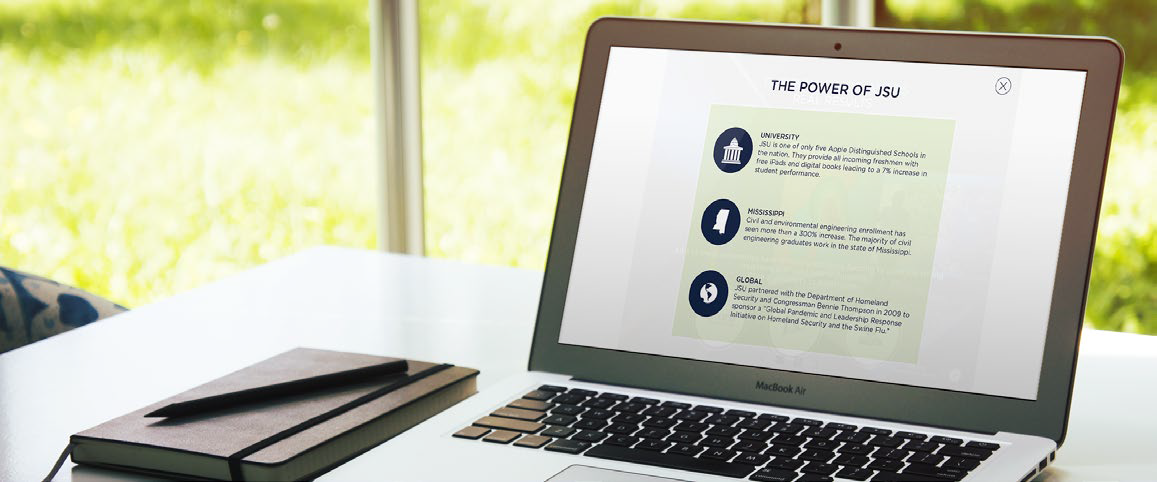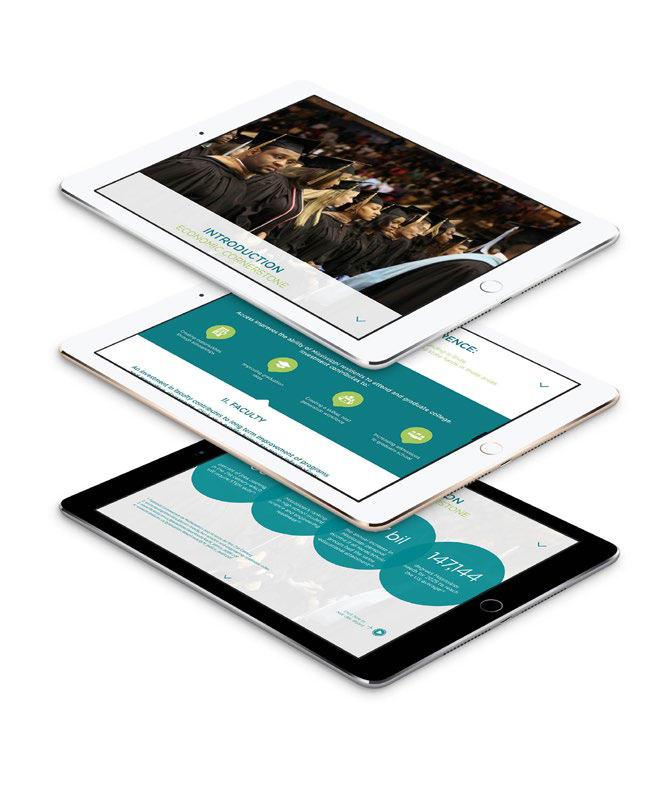APPLICATION DEVELOPMENT

Industry Background
In 1975, a federal lawsuit was filed by the late Jake Ayers Sr. on behalf of his son and other students at Mississippi’s historically Black, public four-year colleges: Alcorn University, Jackson State University, and Mississippi Valley State University. The charge was that these historically black colleges and universities (HBCUs) were being discriminated against by the state because an equivalent amount of funding was not being distributed between the White universities and the HBCUs. By forcing the state to boost funding, the academic programs, facilities, and resources available to students at Mississippi’s HBCUs could be dramatically improved. After decades of legal disputes and appeals, the lawsuit was settled in 2001 with what came to be known as the Ayers settlement, which mandates that the state’s Institution of Higher Learning (IHL) would have to divert significantly more funding to the three universities over the course of several years for improved academic programming and infrastructure projects. Two endowments – one private, one public – would also be established.
The Challenge
However, in order to qualify for the endowments, all three HBCUs were required to maintain specific standards, one of them being that each university must fundraise their own designated amount of funding. In 2015, Alcorn University, Jackson State University, and Mississippi Valley State University enlisted the help of Fifth Tribe in order to develop a strategy to cultivate increased donations to the institutions – not only to improve the quality of life and education of students at the universities, but to raise levels of educational success and economic and career advancement in Mississippi as a whole.
Project Strategy
Fifth Tribe hit the ground running with this project by traveling to Mississippi to visit each of the three universities. The information and research that we gathered were largely informed by the conversations we had with the presidents of the HBCUs; we wanted to know exactly what their current strategies to raising funds looked like, what they were doing with the money they received, and what they needed in order to improve the academic programs, campus infrastructures, and available resources. An unfortunate truth that we learned is that many people perceive the three colleges as insignificant to the progress of Mississippi and its education. However, the fact of the matter is that once given the opportunities (and the means) to do so through the Ayers Private Endowment, the HBCUs of Mississippi have a significant impact in the following ways: improving the state’s educational achievement; attracting the brightest minds in Mississippi; fostering strong relationships among universities, the government, and the private sector; and providing STEM education to build an advanced, 21st century workforce for Mississippi. These impacts are even more important when considering that in 2015, Mississippi was ranked the lowest of all states in high school student science and engineering readiness and that, if all racial/ethnic groups had the same educational attainment, Mississippi personal income would increase by $7 billion annually. To boost investment in the future of Mississippi, Fifth Tribe created a narrative for the HBCU’s fundraising campaigns, which we projected onto a mobile application that profiles the Ayers Private Endowment.
After meeting with the presidents of Mississippi Valley State University, Alcorn State University, and Jackson University, as well as many of their students, program directors, and potential donors, Fifth Tribe was able to build a profile for each of the colleges. These highlighted the information that would be most relevant to donors: a projected plan for how the Ayers Private Endowment uses the millions of dollars in state funds and how investment in Mississippi’s HBCUs ultimately helps the state by helping its poorest residents. We designed a wireframe of potential application layouts, which we presented during a storyboarding stage, and worked collaboratively with the universities to make modifications until we had a five-part storytelling app.
The Solution
Headlined with the slogan “Education for All,” the Mississippi HBCU application welcomes the user with an introduction to the Ayers Private Endowment and striking, data-driven facts from reliable resources on Mississippi’s 2015 ranking in terms of student STEM performance. In other words, the app clearly and immediately identifies the problem – the levels of educational, economic, and career success in the state – and then introduces a solution: the investment in the Ayers Private Endowment is an investment in Mississippi. The message that is conveyed is that, if able to raise the $35 million to supplement state funds, the HBCUs would be able to produce students who are more than competent to contribute to the Mississippi workforce. There is an emphasis placed on how impactful donations are to the Endowment; for example, an “Ayers Success Story” personalizes the user’s journey through the app by telling the story of a MVSU student who was given a scholarship to pursue a STEM degree using Ayers funding. Real results made possible by the “Power of Ayers” are the central focus of the application, as the HBCUs had communicated to Fifth Tribe how critical it was to draw a connection between the effect that Endowment funding has not only on the universities, but on their students, faculty members, and academic programs as well. It also features an appendix of embedded videos with individuals – from trustees to university presidents to deans – giving testimonies on the importance of quality education in Mississippi and how the Ayers funding contributes to that mission. With an intelligible click-through slide-to-slide navigation, relevant image and video visuals, and responsive slides and buttons, the application is extremely user-friendly and successfully targets an audience of potential donors to the Ayers Private Endowment. The app is available on mobile devices, as well as via a shareable web link, and is distributed by the three HBCUs to demonstrate how they succeed and how they plan to continue to succeed with sufficient Ayers funding.




